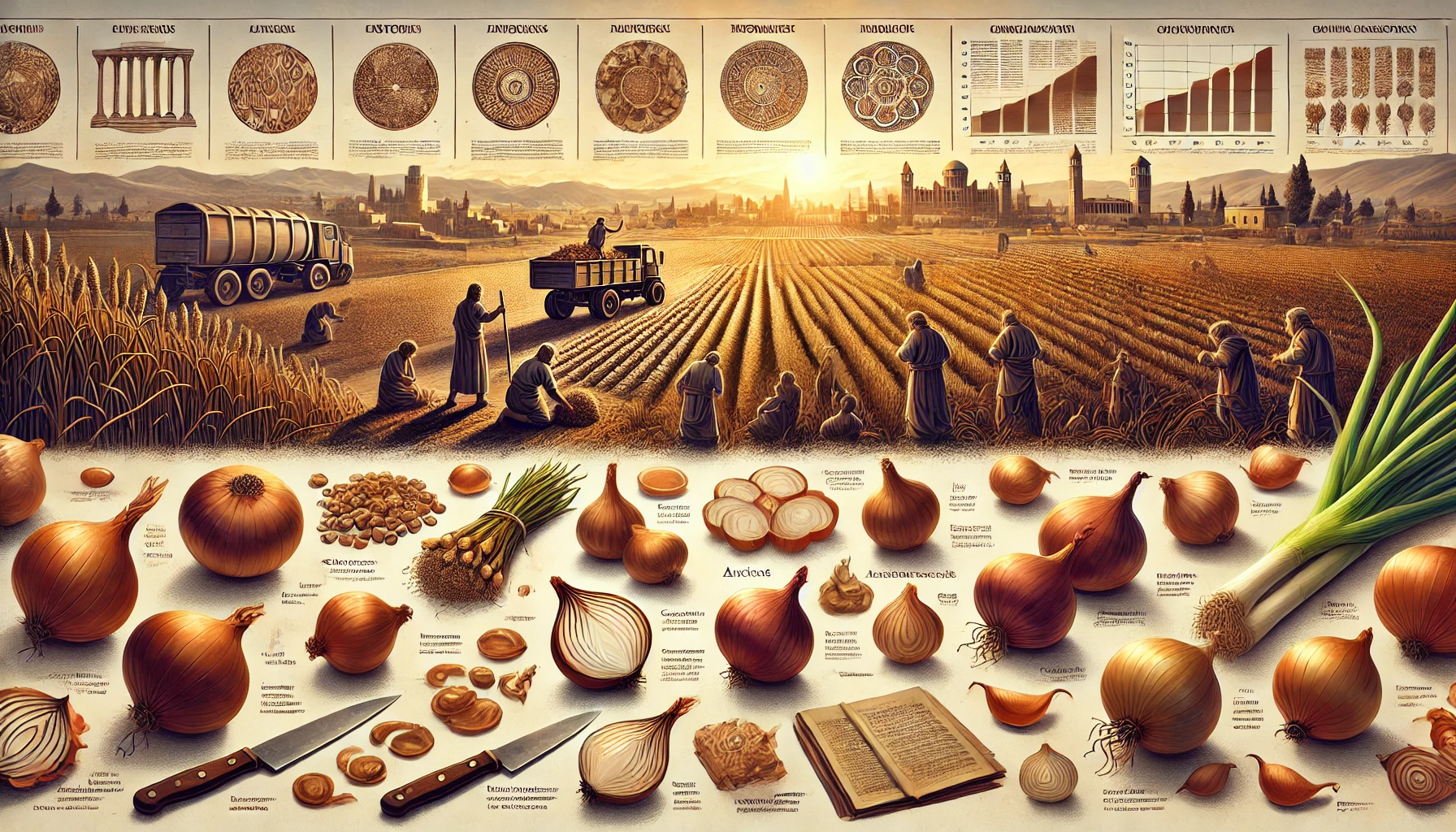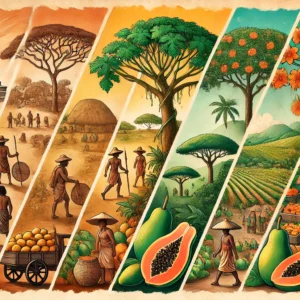The onion, a humble bulbous vegetable, has a long and fascinating history deeply intertwined with human civilization. From its origins in Central Asia to its ubiquitous presence in kitchens worldwide, the onion’s journey is a testament to its versatility, culinary importance, and cultural significance.
Origins and Early Cultivation
The exact origins of the onion (Allium cepa) are somewhat elusive, but archaeological evidence suggests that it was one of the earliest cultivated crops. It is believed to have originated in the region encompassing present-day Iran and Pakistan, where wild ancestors of the onion grew abundantly. Ancient texts, including the Indian Vedas and Egyptian hieroglyphics, make reference to onions, indicating their presence in human diets as far back as 5000 BCE.
Early cultivation of onions likely began around 3500 BCE in the Fertile Crescent, a region stretching from modern-day Egypt to Mesopotamia. Onions were well-suited to the region’s climate and soil conditions, making them an ideal crop for early agricultural societies. Their hardy nature, long storage life, and nutritional value made them a valuable food source for ancient civilizations.
Onions in Ancient Civilizations
Onions held significant cultural and religious symbolism in many ancient civilizations. In ancient Egypt, onions were revered for their spherical shape and concentric rings, which symbolized eternity and the cycle of life. Onions were placed in the tombs of pharaohs, including Tutankhamun, as offerings for the afterlife.
The ancient Greeks and Romans also valued onions for their culinary and medicinal properties. Greek athletes consumed onions to enhance their athletic performance, while Roman gladiators rubbed onion juice on their bodies to promote strength and endurance. The renowned physician Hippocrates prescribed onions for a variety of ailments, recognizing their therapeutic benefits.
Spread and Adoption
The spread of onions across Europe can be attributed to the ancient Greeks and Romans, who introduced them to new regions through trade and conquest. Onions became a staple ingredient in Mediterranean cuisine, where they were used in a variety of dishes, from soups and stews to sauces and salads.
During the Middle Ages, onions were widely cultivated throughout Europe and became a dietary staple for peasants and nobility alike. They were valued for their ability to add flavor to simple meals and their nutritional content, which helped sustain populations during times of scarcity.
Onions in the New World
The arrival of Europeans in the Americas in the 15th and 16th centuries brought onions to the New World. Spanish explorers introduced onions to the Caribbean and Central America, where they quickly became integrated into indigenous cuisines. Onions were later brought to North America by English colonists, who cultivated them alongside other European crops.
Culinary Uses and Cultural Significance
Throughout history, onions have been valued for their culinary versatility and distinctive flavor. They are used in cuisines around the world, from the spicy curries of India to the savory stews of France. Onions can be eaten raw, cooked, or pickled, and they are used as a base ingredient in countless recipes, adding depth and complexity to dishes.
Beyond their culinary uses, onions continue to hold cultural significance in many societies. In some cultures, onions are associated with superstitions and folklore, believed to ward off evil spirits or bring good luck. In others, they are a symbol of hospitality and generosity, often used to welcome guests and celebrate special occasions.
Nutritional Value and Health Benefits
Onions are not only flavorful but also packed with nutrients and health benefits. They are low in calories and rich in vitamins, minerals, and antioxidants. Onions contain compounds like quercetin and sulfur compounds, which have been linked to various health benefits, including reduced inflammation, improved heart health, and enhanced immune function.
Conclusion
The history of the onion is a testament to its enduring popularity and cultural significance. From its humble beginnings in ancient civilizations to its widespread cultivation and culinary uses today, the onion has played a vital role in human diets and societies for millennia. Whether raw, cooked, or pickled, the onion remains a versatile and indispensable ingredient in kitchens around the world, enriching dishes with its distinctive flavor and aroma.



